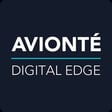
Onboarding for Staffing: Transforming Your Biggest Hassle into a Competitive Advantage
Applicant onboarding can be a complex, time-consuming process and is arguably the single largest chokehold in the talent funnel. In today’s employee-driven workforce, successful agencies will be the ones who will find ways to make onboarding a more streamlined, pleasing process for both talent and recruiters. So, what should staffing leaders do?
In this episode of Avionte Digital Edge, Christopher Ryan, CMO of Avionte, sits down with our Professional Services Consultant, Katie Schulz, to discuss the challenges associated with onboarding for staffing companies, best onboarding practices, how the right onboarding technology can give your business a competitive edge, and how some future-forward agencies are using onboarding to create a true digital talent marketplace.






